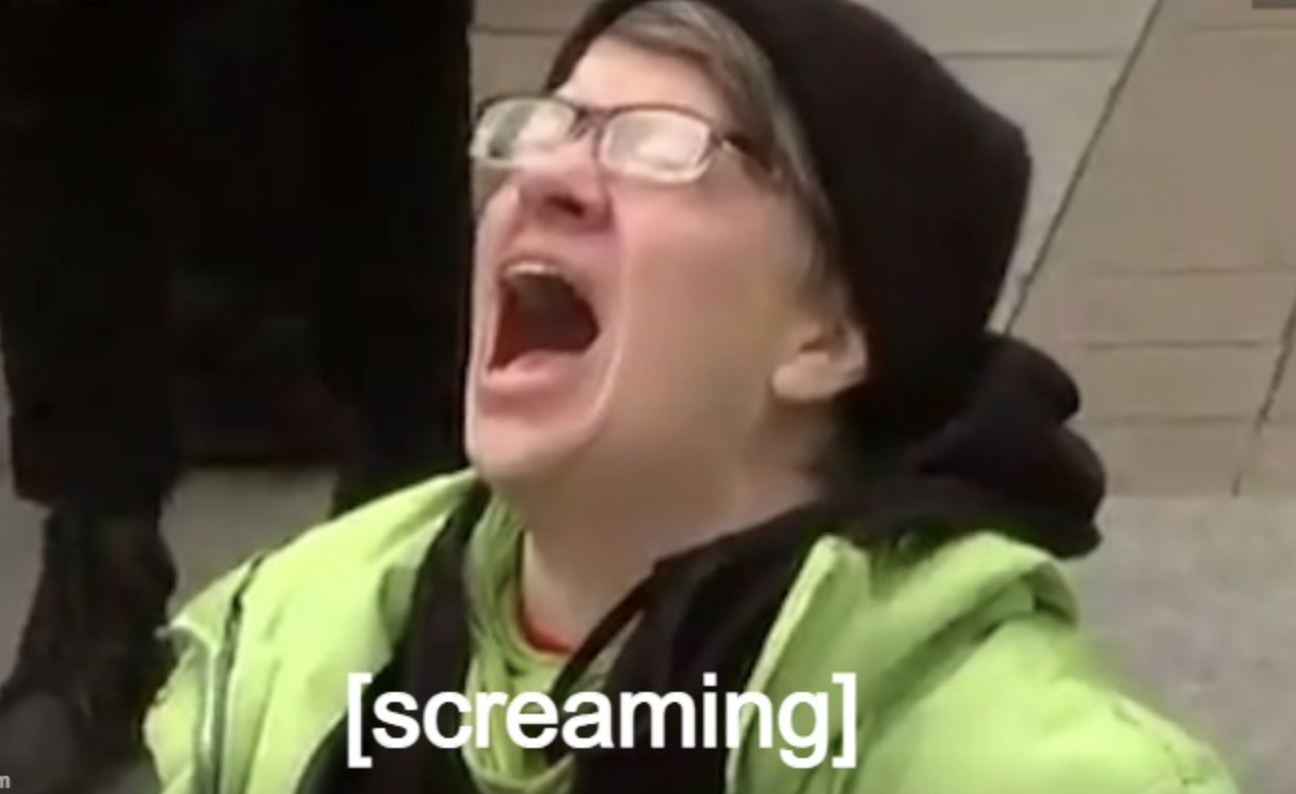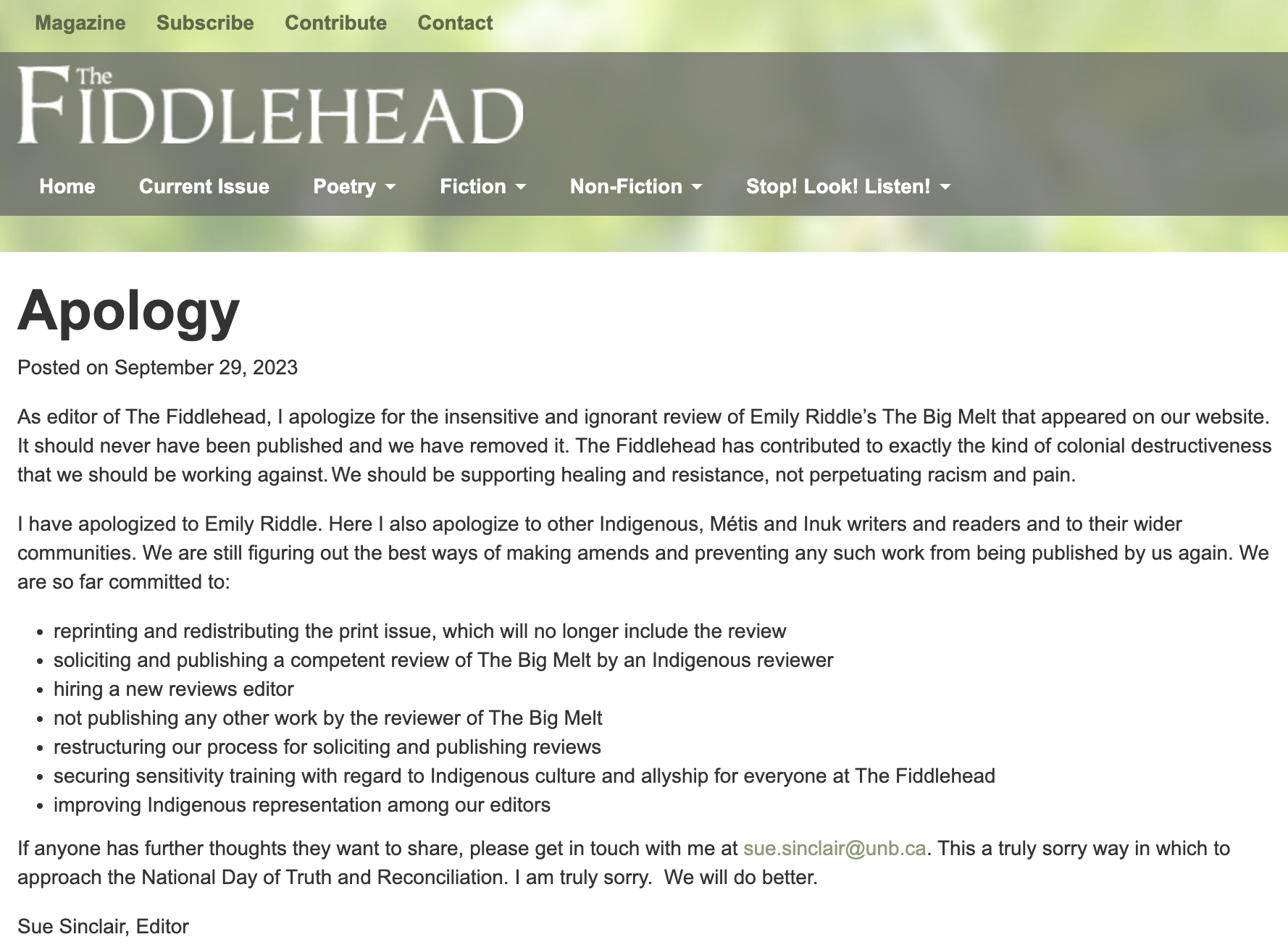Adrick Brock‘s fiction has appeared in The New Quarterly, EVENT, The Malahat Review, Prism International, Riddle Fence, The Dalhousie Review and has been short- and long-listed for the CBC Short Story contest. His first published story, ‘Nina In The Body Of A Clown,’ won the 2014 Western Magazine Award for Fiction. He holds an MFA in Creative Writing from the University of British Columbia and currently lives in Vancouver.
Whenever leafing through a journal, I find it impossible to pass a story featuring a strip joint. Previously, I was ensnared by the grit and energy of Sarah Taggart‘s story, “The Way It Is In A Place Like This.” Now, in PRISM 55:4, there’s your first runner-up for the Jacob Zilber Prize for Short Fiction, “Chez Madame.” There’s an unending list of things to say about a peeler bar, including a discussion of the term “peeler bar.”
We learn so much on the edge of things, on the borders, at the boundaries, and the peeler bar has it all: sexism, classism, drug use, exploitation, misogyny, gender politics, the nature of modern relationships, and infidelity. We have an industry that’s threatened with extinction from changing attitudes, the Internet, and political shifts yet propped up by the unstoppable primal force of male sexual desire. It’s legal yet frowned upon. Legal, but perhaps not for long. It’s not prostitution, but it’s certainly on the same street.
Were you inspired by the richness of the peeler bar environment when you wrote “Chez Madame,” or was it incidental to your story?
I’ve only been to one strip joint in my life, way up north in Alberta while I was treeplanting, and in truth it wasn’t memorable so much as plain and sad. I think that the setting came out of living in Montreal more than anything, and knowing how popular those places are, especially for men (young and old) from out of town.
Someone whose first published story wins the 2014 Western Magazine Award could be forgiven for thinking he was going to absolutely DOMINATE CanLit with a start like that. Early encouragement is a great thing, perhaps a necessity, but did it give you an unrealistic sense of how things were going to unfold and how much tough slogging lay ahead? I suppose I shouldn’t assume you did some tough slogging. Has it all been smooth sailing? Is there another transportation metaphor that would be more appropriate?
The biggest roadblocks for me have actually come more recently, as I try and transition away from publishing short stories in lit mags and head more in the direction of novel and full collection publishing. My writing focus and goals during my early- to mid-twenties were to write short pieces that would fit well in lit mags, and to really build up a publication list, and while awards like the Western Magazine Award were incredible and encouraging at that time, I don’t think I ever thought I was destined for “domination.” Even folks who win Gillers and Bookers have to sit down the day after and get back to writing.
In your February 15, 2016, UBC Creative Alumni Association interview, you spoke of the differences between short fiction and novels. The one thing I took from my latest novel attempt was that I wouldn’t try it again without a very detailed outline. I want to know where I’m going. Otherwise, the main idea wanders out into the wilderness, gets lost, and dies. You spoke of the difficulty in the transition from outline to novel text. Are you committed to outlines, or would you ever let your novel wander freely?
I’ve tried both ways now (writing with a detailed outline and writing ‘off the cuff’) and I still don’t think I’ve succeeded at the novel. Perhaps my next attempt will blend the two? I saw Michael Ondaatje speak recently and he talked about this same matter. Unsurprisingly, a guy whose books are superbly written and find their truth and force more in moments and feelings than in plot doesn’t subscribe to an outline. He starts a book with “scribbles,” because to know how it ends is tantamount to novel suicide for him. For me, I like the idea of “heat” as a way forward and into a piece of writing: honing in on that feeling of life and drama in a random idea or image, following that warmth throughout. Of course, these are all metaphors for creation, easier said than carried out.
As you wrote on your website, “Short stories are laps in a pool; this novel writing business is like trying to cross a lake at night. What just touched my leg?” A fifty-foot serpent, of course, but what are some other challenges and frustrations involved with novel writing?
With short stories, I used to write a lot of garbage, let it sit awhile, sift through it, and pull the tiniest pieces of goodness out in a second draft. In spite of best efforts, this is also how I wrote my first novel. But writing consecutive drafts of a three hundred page book (sometimes with just a character name and a couple plot points intact from the previous draft) has proven very time consuming and soul crushing. I’ve come to the conclusion recently that all this effort might have been for nothing: a subpar story, written three times over.
This time around (I’m on hiatus until September, when I’ll sit down with a new project), I’m taking a lot more time to feel the world around me before hiding away from it to create a fictive analogue. One thing I know from the exercise of my first attempt is that I can do it, as in, get three hundred pages written. And I intend this time around to move a little slower, to take pauses when big decisions need to be made, and not to rush toward publishing/get an agent. I think as writers we get tired of telling people what we do, especially when we’re not yet published in the mainstream sense. We attach so much legitimacy to this idea of the published writer, and in my haste to become legitimate, it’s safe to say I lost sight of the soul of writing, my main motivation for doing it, which of course has everything to do with storytelling and world building and the dance-effect of words.
I could relate to many of the things you said about short story versus novel writing. A short story is much easier to get your head around, to edit, to manipulate. In addition, by the time I’m done, I’ve probably read my story dozens of times, something that is more difficult with a novel. In novel form, my writing tends to experience a reduction in intensity, in care, in quality. Have you found this to be a problem?
I do have a tendency to rush. I think it’s hard not to feel the weight and pressure of the task ahead (80,000 words, my gosh!), and to be a bit hasty or careless in getting there. I probably took good advice in the wrong direction though. I was told that the first draft ought to be uncaring, a big fat mess, and not to worry too much about the words I wrote along the way. That’s probably good advice for some writers, but the end result for me was a jumble of plot points connected by thin, fragile moments. I think I’m at my best when I’m moving more slowly, focusing more on character and less on plot, and really shaping those sentences. As I mentioned above, my next novel effort will definitely focus more on grace than on speed.
What is the current status of your novel?
Completed and even adapted into a YA version, but ultimately unrepresented and unpublished. We’re on a little break right now, the book and I, and then I’ll decide if there’s any more work I’m willing to do on either manuscript to move it forward, or if it’s a good time to throw the towel in (for now). This seems like a daunting and shameful fate for something I worked so hard on, but really it’s my ego that’s at stake, and nothing more. I learned a lot from the process.
In the UBC interview you spoke of being caught up in the identify of being a writer, and thoughts about it taking up more time than the actual work. At the risk of being carried away by the lifestyle, the culture, the romanticized image that might involve “wearing a beret and smoking cigarillos,” what kind of boundaries have you set up to ensure that the work comes first?
I don’t like to talk about writing, for one. (Wait a minute, you’re making me talk about writing!) In truth I don’t really connect to what the younger me said in that interview. The statement seems contrived, in fact. No one I know wears a beret, and as for cigarillos, it’s been a long damn time since high school. Most writers I know are sleep deprived and slogging onwards, regular folks just trying to make a go of their dreams. I like what Stephen King wrote about writing in his book, “On Writing”, about writing as a life support system for life (and not the other way around). You do it to compliment life, to understand it and make it bearable, but you keep it in check with the knowledge that books are just a tiny part of this whole big messy thing. I love that most of my life doesn’t revolve around writing, and that when I’m out in the world, I’m just another human in a jean jacket, sans beret. But when I get to sit down at my desk later, that’s when the cigarillo gets lit.
Yours is one of the better writer websites I’ve seen. Did you realize the importance of a good web presence, or was there someone else in your life who nagged you into doing it? Has your website been an effective tool for self-promotion? What other functions does it serve?
You’re flattering me here. I have a good pal (Marcus Jolly) who took some photos for me, and the rest was pretty much playing around with the pre-fab tools on WordPress. I tend to like clean design––that’s the principle guiding how the site looks and functions.
What has been most effective in the promotion of your work?
Let me hog the mic a moment to say that one of the least effective tools in the promotion of my work (and this is a damn shame, really) has been the six lit mags I published short stories in.
I used to be thrilled at an acceptance (the pay wasn’t bad either), until I realized how crusty and archaic the whole system is: your story gets swallowed up into expensive print issues no one in your life will ever read and there’s no way to post it online without abusing the contract you signed!
In this day and age, if I can’t provide a web link to my story, no one is going to access it. That’s why online lit mags have become so successful, and are able to solicit such great work without offering any (or much) money. We’re desperate for a venue for our work. We want something to slap up on our Facebook page to get shared around. Something to link to from our website. It truly baffles me that a university-funded literary magazine (I’m looking at you Malahat, and you, TNQ) can’t provide free access to their back issues. Has anyone ever ordered one?
In terms of positive promotion, I’d say that little awards and short-list nods have been huge. It didn’t hurt to be in the MFA program at UBC and to get to shake hands with some of the higher ups in publishing and agencies either!





Thank you for this. A nice set of personal and aesthetic reactions especially to the different challenges of short-story vs. novel writing.
He also had some interesting ideas on how journals might improve.